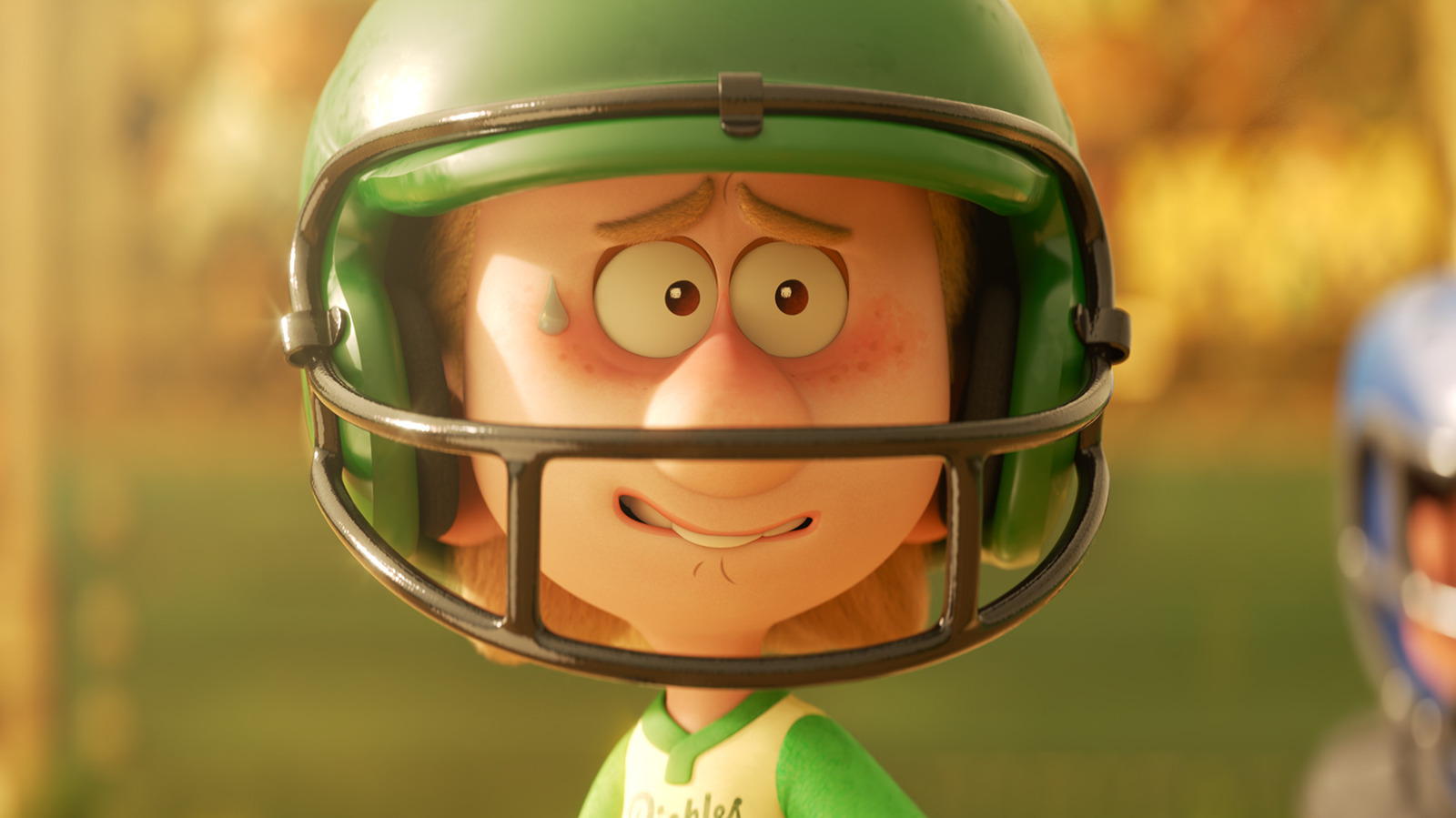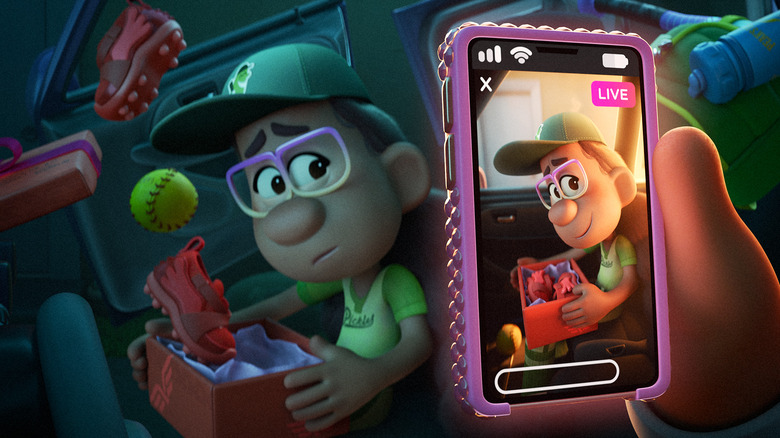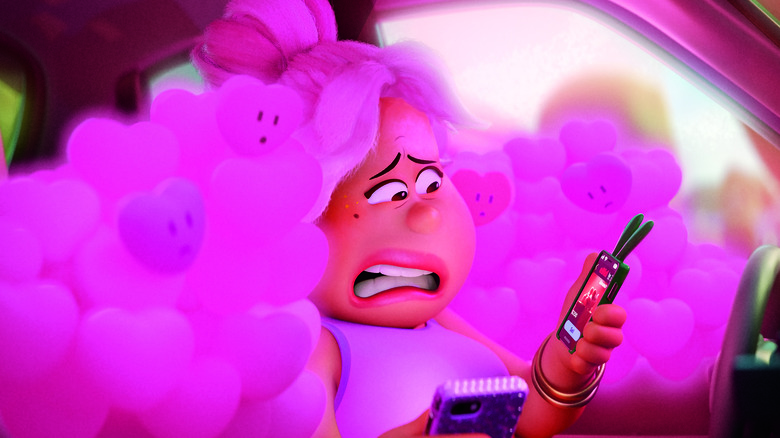
One major hurdle in critiquing television series is that we must evaluate an entire season from limited episodes, as networks may not provide the full seasons for review. This is understandable since finales are typically kept secret to avoid spoilers — no one wants a review revealing who gets killed on «The White Lotus.» However, this can lead to situations where selective screeners result in misleading reviews. For example, some critics might have dismissed the first season of «BoJack Horseman» because it ended just before the show truly shone, or praise «Uzumaki» based solely on its excellent opening episode (a standout anime moment from 2024), not realizing that the series’ quality would later decline significantly.
🚀 Хочешь улететь на Луну вместе с нами? Подписывайся на CryptoMoon! 💸 Новости крипты, аналитика и прогнозы, которые дадут твоему кошельку ракетный ускоритель! 📈 Нажмите здесь: 👇
CryptoMoon Telegram
Disney+ has made available pre-release copies of the first four episodes from the eight-episode series titled «Win or Lose,» which is Pixar‘s debut (and potentially final) original streaming production following recent layoffs and restructuring. The quality of these episodes varies from good to exceptional, and as the series continues to grow more intriguing with each episode, it seems like a straightforward and excited endorsement.
Although it’s unfortunate, I must address the elephant in the room: Disney postponed the release of «Win or Lose» by more than a year, primarily to rework the seventh episode featuring Kai (Chanel Stewart), erasing any hints of her trans identity. This act of censorship, on a show that had already been finalized, is ethically untenable, and there’s concern it may lead to artistic disarray due to the intricate nature of the characters’ interconnected stories.
The same story from multiple perspectives

As a passionate gamer, stepping into the shoes of the Pickles, a mixed middle school softball team, I’m preparing for the championship game, and every episode offers a unique glimpse into each team member’s journey leading up to this crucial match. The opening act, «Coach’s Kid,» delves into Laurie (Rosie Foss), a player grappling with self-doubt, fearing her inclusion on the team is due solely to her dad Dan (Will Forte) being our coach. In the second episode, «Blue,» we follow Frank (Josh Thomson), the umpire, as he navigates the complexities of reentering the dating scene after a tumultuous break-up. The intrigue thickens when Frank encounters Rochelle (Milan Ray) helping others cheat, and her story unfolds in Episode 3, «Raspberry.» This sets the stage for the revelation of her seemingly immature influencer mother Vanessa (Rosa Salazar) in Episode 4, «Pickle.
In a unique twist, these narratives stand out for their down-to-earth and relatable nature within Pixar’s portfolio. The animators cleverly incorporate symbolic visual representations to convey the characters’ emotions. For instance, Laurie’s anxiety manifests as a growing blob named Sweaty (Jo Firestone), reminiscent of «Inside Out 2,» but with a touch of playful humor. Similarly, Frank dons protective video game armor in uncomfortable social settings. When Rochelle feels confident, she transforms into a shoulder-padded executive, while financial insecurity causes her world to unravel, as if gravity no longer exists. Lastly, Vanessa is characterized by her bouncy demeanor and dependence on the pink glow of social media affirmations. However, when the situation becomes critical, she can transform into an action hero straight out of anime.
In terms of styling, «Win or Lose» aligns with the gentle, rounded aesthetics observed in recent Pixar productions such as «Luca» and «Turning Red,» yet it simplifies and abstracts these concepts further. The animation is lively, playful, and frequently humorous; scenes featuring Rochelle’s mischievous baby brother Zane (Harlow Hodges) were particularly amusing for me. It effectively portrays somber moments as well. While the production values are strong, I couldn’t help but yearn for a bit more experimental flair. The early buzz about the series suggested each episode would have a unique visual style, but it seems more accurate to say that these initial four episodes apply different embellishments to a predominantly similar style. Future episodes may venture into more avant-garde territories (the cardboard-style snippets shown in some previews pique my curiosity).
The writers put care in the characters — but one story’s been censored

«Win or Lose» stands out in its well-defined portrayals. Laurie’s prayer-driven struggle with anxiety offers one of the most genuine and compassionate depictions of Christian faith in a Disney cartoon since «The Hunchback of Notre Dame.» The subtle inclusion of a Ruth Bader Ginsberg portrait in Frank’s home serves as a clever signal to viewers, hinting that while he may be socially awkward and clumsy with women, he is not the typical stereotype of the socially awkward man. The episodes featuring Rochelle and Vanessa serve as powerful demonstrations of how the show’s dual viewpoints can significantly alter our perception of characters. Older viewers, in particular, will appreciate the deeper, more subtle layers of Vanessa’s storyline as a young mother.
The fundamental concept behind this series is a tribute to various viewpoints, making it particularly disheartening that Disney executives chose to suppress one of these viewpoints within Episode 7. Given the sensitive and respectful manner in which «Win or Lose» has handled its other characters, I have no doubt that the uncensored version of Episode 7 could have tastefully addressed the transgender narrative. There’s even a chance that, similar to the banned trans episode of «Moon Girl and Devil Dinosaur,» the original cut might leak.
In an ideal situation, the edited version may retain enough subtle hints and thematic elements to facilitate trans headcanons and interpretations. However, if the substitute for Kai’s story feels forced or contrived, and the trans character is erased, the overall experience could feel uncomfortable and disappointing.
Among the recent Pixar productions, the four episodes of «Win or Lose» I’ve watched, particularly Episodes 3 and 4, stand out as some of their best work in years. They surpass disappointments like «Lightyear» and «Elemental,» and their blend of humor and family drama reminds me of my recent favorite Pixar production, «Turning Red.» Each detail seems meticulously planned, each character is unique, and the structure effectively utilizes the serialized format, a rarity in Disney+ projects (unlike how they transformed the «Moana» series into «Moana 2»). However, I remain apprehensive that last-minute alterations to the show’s second half might undermine its well-structured narrative and its positive, inclusive message, so my appreciation is cautious and restrained.
«Win or Lose» premieres on Disney+ on February 19.
Смотрите также
- Что случилось с Джимом Стритом Алекса Рассела в сериале S.W.A.T. Седьмой сезон?
- Обзор Motorola Moto G75: много функций, но есть недостатки
- Настоящая причина, по которой Ильза Фауст в исполнении Ребекки Фергюсон покинула сериал «Миссия невыполнима»
- 7 сериалов, похожих на «Лето, когда я стала красивой»
- Месяц, 150 фотографий – мой вердикт камерам OnePlus 13
- Финал первого сезона «Людей Икс ’97» раскрывает тайну Человека-паука длиной в десятилетия
- Властелин колец: объяснение настоящей концовки Эовин — был ли это триумф или трагедия?
- Исправление No Rest for the Wicked добавляет факел для левой руки и изменяет баланс церимского тигля.
- Серия Galaxy Tab S11 от Samsung может появиться до конца года
- Актерский состав «Под куполом»: где они сейчас?
2025-02-19 11:30